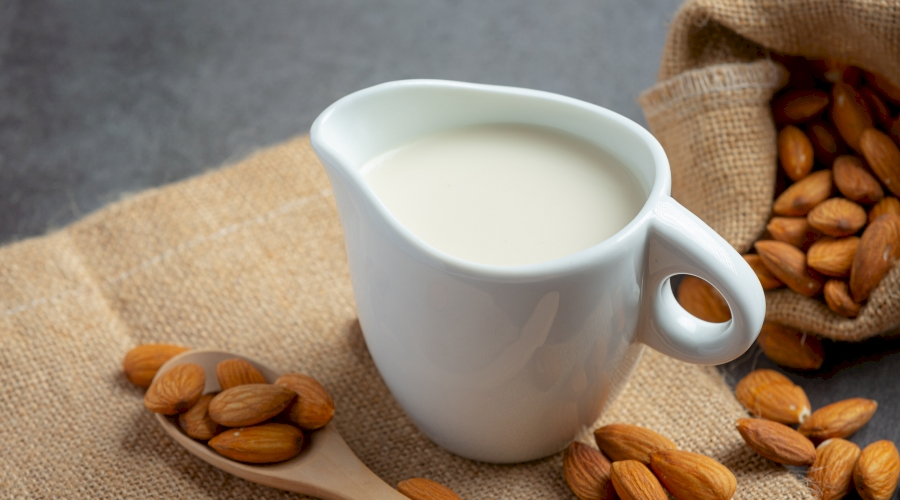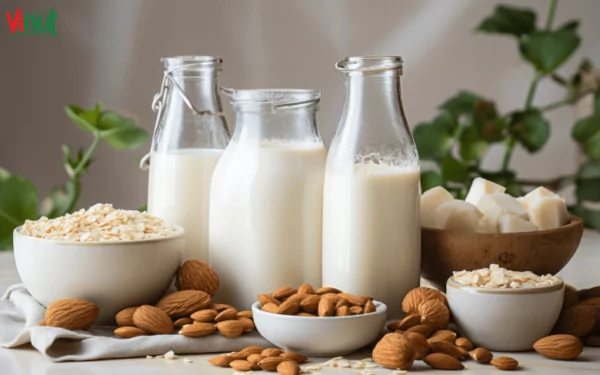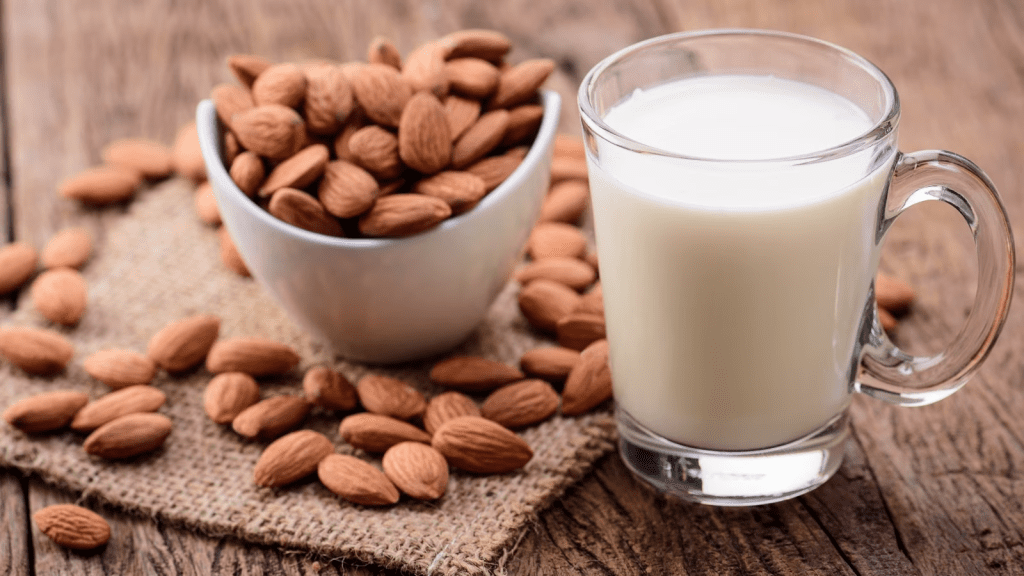Almond milk has gained a reputation as a healthy, versatile alternative to cow’s milk. Whether you’re lactose intolerant, vegan, or just looking for a lighter option, almond milk seems to tick all the boxes. But what about the claims online that it’s dangerous? If you’re drinking almond milk daily, it’s natural to wonder if those fears hold any truth. Let’s dive into the facts to separate reality from rumor.
What Is Almond Milk and Why Is It So Popular?

Almond milk is a plant-based drink made by blending almonds with water and straining the mixture to remove solids. What makes it so appealing? For starters, it’s naturally lactose-free, low in calories, and offers a subtle nutty flavor that works well in coffee, smoothies, or even baking.
It’s also a go-to choice for those managing dietary restrictions. Vegans appreciate its animal-free origins, while people with lactose intolerance find it a welcome substitute for dairy. But is almond milk too good to be true?
Nutritional Breakdown of Almond Milk
Let’s talk numbers. One of almond milk’s biggest draws is its low-calorie profile. Unsweetened almond milk contains about 30-50 calories per cup, depending on the brand. Compare that to whole milk’s 150 calories per cup, and you can see why almond milk is a favorite for those watching their waistlines.
Almond milk is also low in protein, with only 1 gram per serving, compared to the 8 grams found in cow’s milk. While this isn’t a dealbreaker for many, it’s worth considering if you rely on milk as a protein source.
To boost its nutritional value, most almond milks are fortified with essential nutrients like:
- Calcium: To support bone health
- Vitamin D: For immune function and calcium absorption
- Vitamin E: A powerful antioxidant
Why Are Some People Concerned About Almond Milk?
If almond milk is so great, why the controversy? Here are some common concerns:
- Low Protein Content: Almond milk lacks the protein found in cow’s milk, which may not suit those needing higher protein intake.
- Additives Like Carrageenan: Some brands use carrageenan as a thickener, which has been linked to digestive issues in large amounts.
- Allergen Risk: Almonds are tree nuts, and people with nut allergies should steer clear.
- Environmental Impact: Almond farming requires significant water, raising concerns about sustainability.
While these issues are valid, they don’t automatically make almond milk dangerous. Let’s explore the science behind these claims.
Is Almond Milk Safe? A Look at the Evidence
The short answer? Yes, almond milk is generally safe for most people when consumed as part of a balanced diet. Here’s why:
- Carrageenan Concerns: While carrageenan has been controversial, most studies indicate that the small amounts used in food products are safe. If you’re worried, opt for carrageenan-free almond milk.
- Nut Allergies: For those with nut allergies, almond milk is a no-go. Always read labels carefully if you’re unsure.
- Fortification Matters: Some almond milks are fortified with calcium, vitamin D, and other nutrients, making them comparable to cow’s milk in terms of key vitamins and minerals.
How Does Almond Milk Compare to Regular Milk?

Cow’s milk and almond milk serve different purposes, and one isn’t inherently better than the other.
Cow’s Milk
- Higher in protein (8 grams per cup)
- Naturally rich in calcium and vitamin D
- Great for growing children or individuals with higher protein needs
Almond Milk
- Lower in calories and fat
- Free of lactose, making it ideal for those with dairy intolerances
- Often fortified to match the nutrient content of cow’s milk
If you’re drinking almond milk daily, ensure you’re getting protein from other sources, especially if you’re replacing cow’s milk entirely.
Health Benefits of Almond Milk
Despite the concerns, almond milk boasts several health perks:
- Low-Calorie Option: Unsweetened almond milk is a great choice for those watching their calorie intake.
- Heart-Healthy Fats: The fats in almonds can help support cardiovascular health.
- Lactose-Free and Vegan: Perfect for individuals with dietary restrictions.
- Rich in Vitamin E: This antioxidant protects cells from damage and supports skin health.
What About the Risks?

While almond milk is safe for most, it’s not without potential drawbacks:
- Nut Allergies: Obviously, anyone with a tree nut allergy should avoid almond milk altogether.
- Digestive Sensitivities: Additives like carrageenan can cause bloating or discomfort in sensitive individuals. Choose brands with minimal ingredients to avoid this issue.
- Low Protein: If protein is a priority, you’ll need to supplement your diet with other high-protein foods.
Debunking Online Myths About Almond Milk
The internet is a goldmine for misinformation, and almond milk hasn’t escaped the rumor mill. Claims that almond milk is “toxic” or “dangerous” are often exaggerated or lack scientific backing. For example:
- “Almond Milk Causes Cancer”: This claim is usually tied to carrageenan, but current evidence doesn’t support this in the small quantities found in almond milk.
- “It’s Bad for the Environment”: While almond farming does use significant water, the dairy industry has its own environmental challenges, including greenhouse gas emissions.
To separate fact from fiction, rely on credible sources and consult healthcare professionals for personalized advice.
How to Choose the Best Almond Milk

To maximize the benefits and minimize potential risks, here’s what to look for:
- Unsweetened Varieties: Avoid added sugars by choosing unsweetened options.
- Fortified Brands: Look for almond milk fortified with calcium, vitamin D, and vitamin B12.
- Short Ingredient List: Fewer additives mean a cleaner product.
- Carrageenan-Free Options: For peace of mind, pick brands that skip this thickener.
Conclusion: Is Almond Milk Safe for Daily Use?
Yes, almond milk is safe for daily consumption for most people. It’s a fantastic low-calorie, dairy-free alternative that works well in a variety of diets. However, it’s not perfect. Those with nut allergies should avoid it, and individuals concerned about additives should opt for clean-label brands.
Ultimately, almond milk can be a healthy part of your routine as long as it fits within a balanced diet. Keep in mind its low protein content, and make sure to include other protein sources if needed. With the right choices, almond milk can be a delicious, nutritious addition to your daily lifestyle.


